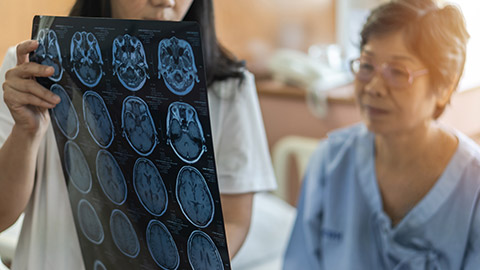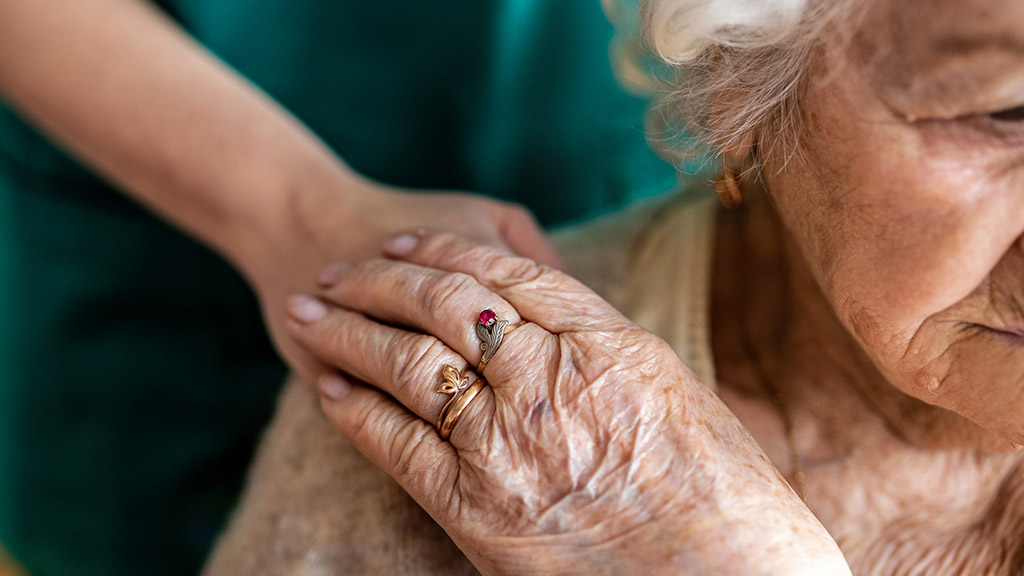Support workers may play an important role in recognising the early signs of dementia, which can be subtle and easily mistaken for other conditions or normal aging. It's crucial not to assume changes are due to dementia, as many factors can cause similar symptoms. When concerns arise, notifying supervisors or healthcare professionals is essential. If the symptoms are caused by dementia, an early diagnosis allows for access to support, information, medication, and future planning, highlighting the critical role of support workers in improving outcomes and quality of life for those they care for.
There are 10 warning signs and symptoms. If you notice any of them, don't ignore them.
10 warning signs of dementia
Based on Ten Warning Signs, Dementia Australia
Activity - Watch
Watch this video summarising the 10 warning signs of dementia.
Activity - Scenario & questions
Read the scenario and answer the questions about early signs of dementia.
You are a support worker at an aged care residential facility in New Zealand. One morning, you notice something unusual with one of the residents, Mrs. Vai. She's been living at the facility for several years and has always been quite independent. Today, as you're helping her with breakfast, you observe the following:
- She forgets the names of the other residents at the table, which is unusual for her.
- Her mood fluctuates rapidly, going from cheerful to tearful and back again within minutes.
- During a conversation, she seems to have difficulty following the discussion and often loses her train of thought.
Use the following documentation tool to record your answers to the following questions.

As dementia is variable and can result from many different conditions, it must be diagnosed accurately by medical professionals. Only a doctor can diagnose dementia. The first step is usually a visit to the person’s general practitioner (GP), who may carry out some tests and assessments and/or refer the person to a specialist. There are several types of assessment used to confirm or exclude a diagnosis of dementia.
The diagnosis of dementia involves a comprehensive evaluation of a person's cognitive abilities, medical history, physical examination, laboratory tests, and brain imaging.
Here are some common steps involved in the diagnosis of dementia:
- Medical history: The healthcare professional will take a detailed medical history of the person, including information about their symptoms, family history, medications, and other medical conditions.
- Physical examination: A physical examination will be performed to assess overall health, including neurological examination to evaluate cognitive function, balance, coordination, and reflexes.
- Cognitive assessment: A cognitive assessment will be performed to evaluate memory, attention, language, and other cognitive functions. The Mini-Mental State Examination (MMSE) is a commonly used test for assessing cognitive function.
- Laboratory tests: Blood tests may be done to evaluate for underlying medical conditions that may cause cognitive impairment. Additional laboratory tests, such as genetic testing and cerebrospinal fluid analysis, may be done if there is suspicion for certain types of dementia.
- Brain imaging: Brain imaging, such as magnetic resonance imaging (MRI) or computed tomography (CT) scans, may be performed to look for changes in the brain that are associated with dementia.
- Referral to specialists: In some cases, the healthcare professional may refer the person to a specialist, such as a neurologist, geriatrician, or psychiatrist, for further evaluation and treatment.
It's important to note that dementia can have many different causes, and diagnosis can be complex. The above information is provided for informational purposes only and should not be used as a substitute for medical advice. If you notice symptoms of dementia in a client it is important to speak to your supervisor or qualified medical professional.
